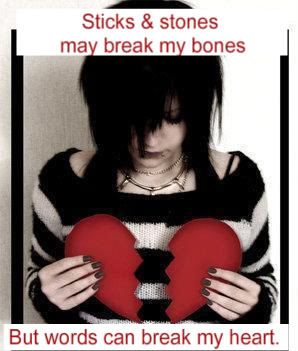Bless his heart, I think he genuinely is trying, but he just doesn't get it. On his own initiative, he took the time to write down his understanding of what I was upset about in a recent interaction. He asked me to listen and tell him if his understanding was correct.
I appreciate his good intentions and effort, but after talking with him for an hour or so, I left feeling awful. I realize it is because even in the process of trying to work it out, he continues to define me, i.e. telling me how I was feeling and what I was doing.
When the core problem is defining the other, it cannot be worked through in a conversation where the boundary violations continue. Such a discussion doesn't solve the problem, it is the problem. As Patricia Evans writes:
The verbal abuse is the issue in the relationship. When a couple is having a real argument about a real issue, both parties may feel angry but they can say "this is what I'm feeling angry about " or "this is what I want" and eventually, if there is good will on both their parts, the issue is resolved. In a verbally abusive relationship there is no specific conflict. The issue is the abuse and this issue is not resolved.
Each person must see and hear the other in order to understand. Each must be aware of their own feelings and be able to distinguish their own feelings from the other person's feelings. I just thought everybody knew this. Evidently not.
When I told him what my motives had been, what I was feeling, and what I had said, he concluded, "It couldn't have happened that way or I wouldn't have reacted the way I did." Sigh . Rather than consider that his perceptions of me were inaccurate, he concludes that I am in error.
He seems perplexed when I tell him that how I feel is not a matter of 'opinion' where his guess is as good as mine. He truly does not realize that he does not have the ability to know for certain how another person feels without asking them.
I am glad I got to see Bob's confusion about emotional and psychic boundaries at a time when both of us were calm rather than upset. It gives me more clarity. And that helps me accept how things are.
*





